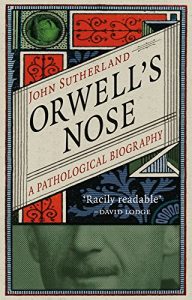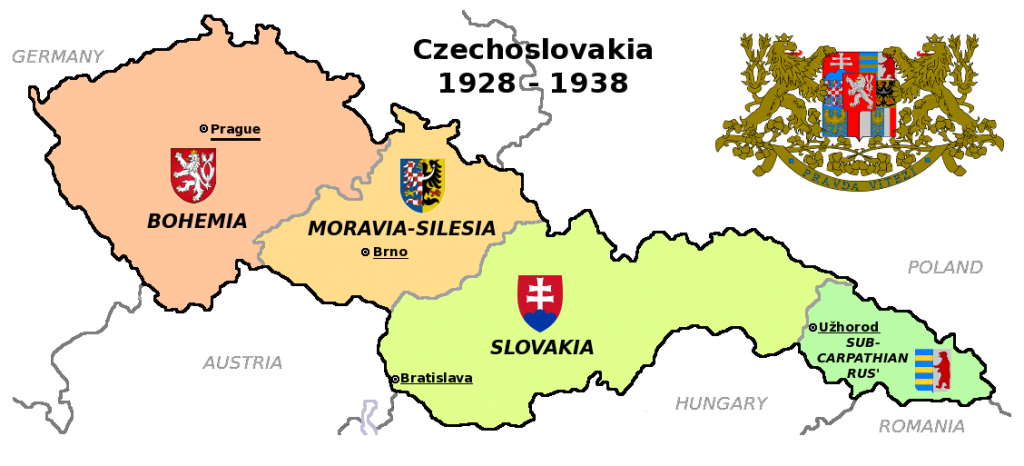My Five Favorite Books of 2019
Posted By Margot Metroland On In North American New Right | Comments Disabled1. John Sutherland
Orwell’s Nose: A Pathological Biography
London: Reaktion Books, 2016
This small but brilliant volume is a joy to read, maybe the best single Orwell critique in recent years. “A Quirky and Snarky Treat” somebody at Amazon called it, and that it certainly is. “The lower classes smell,” Orwell famously offers as an upper-class folk belief, in The Road to Wigan Pier. This reminds me, inevitably, that just about everything in that particular book literally stinks. The boarding-house bedroom smells like a ferret cage in the morning; chamber pots are under the kitchen table.
But you find this sort of thing everywhere in Orwell’s odoriferous writing. Here’s another line, from a different book, which you’ll certainly recognize: “The hallway smelt of boiled cabbage and old rag mats.”
Biographers and critics always touch upon Orwell’s obsession with odors, but here we have an author who focuses almost entirely upon the subject, though this discussion is accompanied by discussion of Orwell’s other peculiarities and bad habits, not least of which is his sexual behavior. Sex obsessed him, and he was promiscuous, but he wasn’t much of a lover in the usual sense: little foreplay or cuddling.
John Sutherland is a retired professor who seems to have digested just about everything anyone else has ever written on Orwell. I suspect a non-aficionado coming to this book might easily mistake it for a thoroughgoing hatchet job. George Orwell was in many ways a nasty piece of work. Sadism and disgust are the fuel of his writing. Sutherland seizes this fact with both hands and makes it a thing of delight.
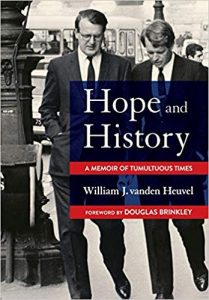 [2]2. William J. vanden Heuvel
[2]2. William J. vanden Heuvel
Hope and History: A Memoir of Tumultuous Times
Ithaca: Cornell University Press, 2019
Bill vanden Heuvel (b. 1930) is the father of Leftist gadfly and The Nation editor Katrina vanden Heuvel (via his first wife, the writer-editor Jean Stein, which may explain a few things). But this is sort of like describing Henry Fonda as being the grandfather of Bridget. The career of William vanden Heuvel is so vast and nebulous it’s very hard to describe him in a few words. There’s no single achievement to focus upon. He was at various times chief aide to Col. William “Wild Bill” Donovan, the Wall Street lawyer who founded the OSS and CIA. He also served as two kinds of ambassador to the UN. He was an aide to Bobby Kennedy. He was counsel or advisor to all sorts of governors and mayors. And he was a longtime friend of Eleanor Roosevelt, whom he first met as a boy. It’s hardly worth noting that he’s a member of the Council of Foreign Relations.
The only reason I have the book is that the author is a friend of a friend, and I was obligated to read the book and give some kind of descriptive feedback. Here it is. This is a useful time-capsule from mid-to-late 20th century public-policy thinkery. It consists largely of extensive speeches and papers that Bill gave during his long career. Rather short autobiographical sections separate these, which is nice, because those speeches go on and on, and are printed in something like 7.5-point type. (Terrible blunder; were we supposed to skip over these? Was that the idea?)
I gather the book was pulled together at the behest of daughter Katrina, perhaps to make sure that her father’s major pronouncements were all gathered in one convenient place.
As to the autobiographical sections, I must say that Bill is one of the least egotistical and most self-effacing public figures I’ve ever come across. No wonder we don’t have any previous memoirs from him. The rather lame title is a measure of his modesty. Other high-profile memoirists would have leaned toward something like Reflections of Jack Sprat: My Life in Public Service. Bill’s early life is beguiling. His parents were immigrants in Rochester, NY. The father was Dutch and worked in the French’s mustard factory. The mother was Belgian (Flemish, as one would guess) and worked as a cleaning woman. Somehow Bill got a scholarship to Deep Springs College, a big-brain experimental school in the California desert; after which he shot into a special program at Cornell, finished law school, worked for Bill Donovan, and flew high for the rest of his life.
What makes the book useful is that it goes a long way to explaining the mindset of these idealistic old-school liberals from the 1950s and 60s. A lot of them, those who are still with us like Bill at age 89, remain dewy-eyed idealists, still carrying a torch for Left-liberal social activism, civil rights, and so forth. Such a mindset must be very comforting and reassuring. You can tell yourself you were on the side of the angels, you did the right thing, and if something went awry it’s just because you didn’t try hard enough, or there were bad people around who sabotaged your plans. In the end you have kept your noble ideals intact. I’m reminded of those interviews with Allen Dulles toward the end of life, when he was being challenged about some CIA capers and fiascos he had overseen. Allen regretted nothing. If Bay of Pigs failed, it was because JFK didn’t provide air support.
The book’s defects are mainly in its typography. That tiny type used for the long extracts is unforgivable. This problem is endemic to university presses, I find. It’s too bad, because the book production is first quality every other way.
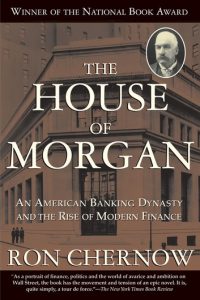 [3]3. Ron Chernow
[3]3. Ron Chernow
The House of Morgan: An American Banking Dynasty and the Rise of Modern Finance
New York: Atlantic Monthly Press, 1990 (first edition, hardcover).
I can’t say I ever spent much time wondering how Ron Chernow became a perennial fixture on the book scene; it seems he was just always there, cranking out yet another thick tome about a President or a tycoon. But here’s where it all began: writing about J. P. Morgan. Chernow’s bookmaking career started with this massive multi-generational biography, which he completed in 1989.
Now you’ve all heard of J. P. Morgan. There were two of them, actually. There was the elder one (J. Pierpont Morgan) with the bulbous nose, who ran banking houses out of New York and London from about 1870 till his death in 1913; owned the White Star Line and the Titanic and many other (generally less tragic) things; and founded the Morgan Library and Museum. And then his son J. P. Jr., or “Jack,” who carried on the family business for another thirty years, survived a couple of assassination attempts, and was famously photographed once in a Senate hearing room with a Ringing Bros. circus midget on his lap. But then there was also Junius Morgan, Pierpont’s father, the Connecticut Yankee (b. 1813) who founded the dynasty in mid-1800s London, and set the style for his descendants. There were other, later Morgans, of course, as well as a multitude of commercial and merchant banking firms with the name (Morgan Grenfell, Drexel & Morgan, Morgan Guaranty Trust, Morgan Stanley, Morgan Harjes, JPMorganChase), some of which persist to this day.
It’s a fascinating, interwoven skein of stories: how some brilliant, driven but invariably neurotic American Everymen not only established themselves as tycoons but wrested the financial and political pivot of the world from the City of London and replanted it in Wall Street. This move took nearly a century, and required the Morgans themselves to spend half their time in London as merchant bankers, making themselves agreeable while currying favor with Lombard Street, the Bank of England, and the Archbishop of Canterbury.
Their Anglophilia came naturally enough, but it was also an absolute necessity for anyone engaged in high-level finance and commerce in the mid-to-late 1800s. To put it simply, in the 1800s the City owned the world. Contrariwise the USA, pre-Morgans, looked to be a perennial deadbeat republic, always defaulting on loans—rather like the Latin American countries that the 20th century Morgan companies were always making dodgy loans to. It was Junius and Pierpont Morgan who pulled America out of that swamp and made it Top Nation.
And just as the Bank of England was the hidden hand behind the British government of the 18th and 19th centuries, so the House of Morgan often directed American foreign policy in the 20th. Often it’s hard to tell where the private sector begins and ends.
Many big names from the 19th and 20th centuries get a look-in here. There’s Charles Dickens, whose original, heavily hand-edited 1843 manuscript of A Christmas Carol Jack Morgan would read to his children every year . . . because he owned it . . . because he was J. P. Morgan Jr.! (Incidentally, this Morocco-bound ms. is on display at this very moment at the Morgan Library in New York.) There’s Commodore Vanderbilt (“The public be damned!”). There’s Charles Lindbergh, whose wife Anne Morrow was the daughter of Ambassador Dwight Morrow, a sometime Morgan partner. Lindbergh, son of an irksome Minnesota congressman, was often an annoyance to the House of Morgan, particularly in the 1940–41 period when he was a spokesman for the America First Committee. Eventually Morgan partners and their families just cut the Lindberghs dead: shunned them socially, didn’t speak to them. This is interesting to consider, because while many people today would agree with Lindbergh’s aims, his anti-war comments struck people like his mother-in-law and Morgan head Thomas Lamont as being absolutely toxic. It probably wasn’t his politics per se but something about Charlie’s personality, and his tendency to allude to dark and malign forces behind the scene—something that struck close to home at the House of Morgan.
The last quarter of the book would be of more interest to modern finance historians than anyone else. Since the book was written in the late 1980s, treatment of that era suffers from parallax error: there’s a lot on leveraged buyouts (LBOs), which loomed so large in ’80s business news, but really were not unique to the time. Hostile acquisitions and company-gutting had been going on since the 1950s. They became big news in the ’80s because the market was hot, Wall Street was now cool, “hedge funds” and “M&A’s” and “derivatives” all sounded glamorous. To put it another way, a lot more people were reading business news. But the expansive narrative does not bore. It brings back into the light certain front-page swindlers of the era, such as Tony Gebauer, the Latin America expert and Morgan high-flyer of the ’70s and ’80s, who got nabbed for embezzling many millions from private accounts in 1986, then spent some time in prison and emerged again in New York as an A-list socialite in the 1990s.
4. Cecily Mackworth and Jan Stransky
Czechoslovakia
London: Macdonald & Co. 1944
This is a rare oddment I read on closed reserve at the New York Public Library around mid-year. For some reason I was trying to discover the whole rationale for creating Czechoslovakia in the first place. Volumes on this subject make up a small shelf indeed; most writings on the country’s founding, and the interwar period, tend to be vapid, short on insight. They mainly tell you what a brave, industrious little country it was, and how it was such a tragedy that the West allowed Hitler to tear it apart into its component pieces in 1938–39. The why and how of its creation is always ignored, beyond a glib suggestion that at the Versailles Conference in 1919, someone thought it was a good idea to give the Czechs their own country. Self-determination, you know: Wilson’s Fourteen Points. And while they were at it, the Czechs and Moravians might as well rope in the Slovaks and Ruthenians too, since none of these folks had any centralized, operative government after the breakup of the Austro-Hungarian Empire. So much for self-determination.
The “Czech” part of Czechoslovakia (Bohemia and Moravia) was very much a First World country at that time, equivalent to the industrialized portions of nearby Germany. That’s because it had been in fact the industrial center of the Hapsburg Empire. In other words, the Versailles schemers took away the brawny, smokestack part of Austria—the region where they made munitions, and vehicles, and glass—and declared it a nation. (They must have really hated the Habsburgs.)
In this new, made-up country, the old ruling class of Bohemia (Austrians, and Germanized Czechs) were chased out or deposed. The new country would be ruled by Czechs, with a few Slovaks thrown in. The only trouble was, there really was no experienced Czech ruling caste, beyond the Germanized classes now out of favor. Thus, Czechoslovakia not only looked very wobbly on the map, it was inherently unstable from the day it was formed. The only cultural cohesion it had was a romantic, rather fairy-tale tradition of having once been a great country, back in Medieval times.
Turning this airy romanticism into the rationale for a nation was the life’s work of Tomas Masaryk (1850–1937), “father of Czechoslovakia” and its first president. Masaryk was an unlikely nation-builder. He was neither a soldier nor a diplomat. He was a philosophy professor who wrote a doctoral thesis on “Suicide as a Mass Phenomenon.” How this rather dreamy, abstracted figure ended up creating a nation had a lot to do with the friends he made. He married an upper-class American girl and spent some fine sojourns in the United States, moving among diplomats and statesmen and fellow academics. During the First World War he convinced Woodrow Wilson that a Czechoslovak nation might be a worthy pet project for America to pursue. At another time, Masaryk famously defended a Jew in his homeland from the charge of ritual murder. Thus Tomas Masaryk came to be known as Friend to the Jews.
Masaryk’s patchwork nation did not long survive him. His cult of personality held the nation together only while he lived. Under his weak and vacillating successors, it almost immediately disintegrated. Czechoslovakia was partitioned in 1938–39 not because Hitler was threatening to invade, but because Presidents Benes and Hacha were unable to give the British and French governments any strong and cogent reason why this hodgepodge carved out of the old Austria-Hungary should exist in the first place.
In 1945 it was reconstituted on paper, but its “democratic” coalition government was little more than a USSR puppet regime from the start. For a while, Masaryk’s loquacious, unstable son Jan was foreign minister, and it looked as though Czechoslovakia might yet find a place in the Western camp. But then in early 1948 the Communists staged a coup, threw Jan out his bathroom window, and that was that. Of course Communists took over; that’s what happens to people who don’t have a ruling caste. The polity that survived for the next four decades was the most artificial one of all, held together by the force of Soviet tanks and bayonets.
This small book, written toward the end of the Second World War, manages to sketch in enough Czech history and nationalistic self-regard to explain why the country was founded, and why anyone cared. What it doesn’t address is the country’s weak foundation, particularly in its lack of a coherent ruling stratum or even what we’d now call a Deep State. Most likely Bohemia, Moravia, Slovakia, and Ruthenia would have thrived after 1918 if the Allies had left them right where they were, as provinces of Austria and/or Hungary. But Austria was an old monarchy, a tyrant that needed to be punished. So its seacoast and northern marches were ripped away, and seemingly out of nowhere we got something called Czechoslovakia, a jumble of lands and peoples stuck together with cotter pins and library paste.
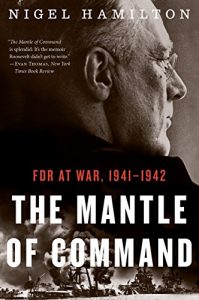 [5]5. Nigel Hamilton’s FDR trilogy:
[5]5. Nigel Hamilton’s FDR trilogy:
The Mantle of Command, Commander in Chief, War and Peace
All published 2014–2019 by Houghton Mifflin Harcourt.
There are three big volumes here, and I will not go into them in detail except to say that they are all very readable and enlightening. They are also rather radical and revisionist in argument. Essentially, Hamilton maintains that FDR was the Allies’ prime mover in wartime strategy. Not Gen. Marshall, not Adm. King, certainly not Winston Churchill and his grumpy commanders.
Unlike Churchill, who wrote many volumes of self-puffery, Roosevelt left no memoir or testament. The vision of him that we have in popular memory is pretty much the Hollywood one: a smiling, genial fellow, rather guileless and easily persuaded. Actually, per Hamilton, it was Roosevelt who kept the Allies’ European and Mediterranean theater focused on the single main objective of preparing for the D-Day invasion in Normandy. It had to be Normandy because that provided the flat, lowland approach necessary for a quick victory: a straight shot to the Rhine and the Ruhr. But Churchill and his commanders (notably Alan Brooke) didn’t want a cross-channel invasion at all; they’d been thoroughly demoralized by the fiascos of 1940-42. Churchill preferred to dream up sideshows: commando raids in the Aegean, or a proposed invasion of Austria through the mountain fastnesses of Italy and Slovenia. Roosevelt was steadfast in his strategy. He let the British know that if they were not going to be cooperative and do it his way, he and George Marshall were ready to swing the major war effort to defeating Japan before all else.
One key point Hamilton grasps at the outset is that Franklin Roosevelt was a maritime man. He had been assistant secretary of the Navy during the First World War, but quite beyond that, he was always fascinated by ships, shipping routes, and maps in general. It was in his blood. His forebears had been shipping tycoons, with clipper ships to China. By instinct he thought globally.
